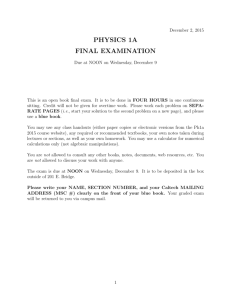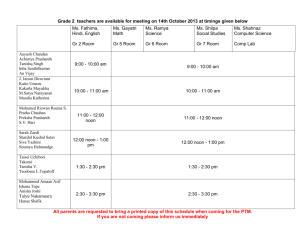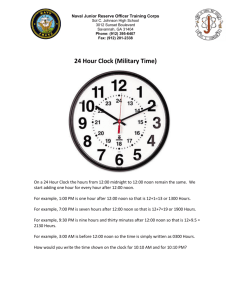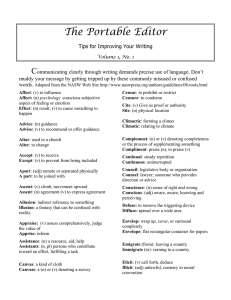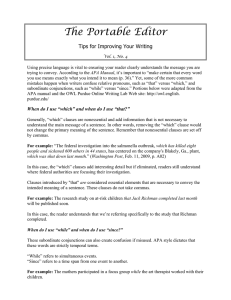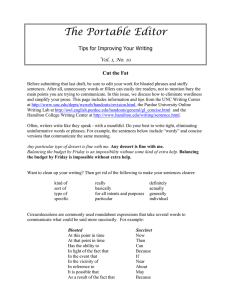The Portable Editor Tips for Improving Your Writing
advertisement
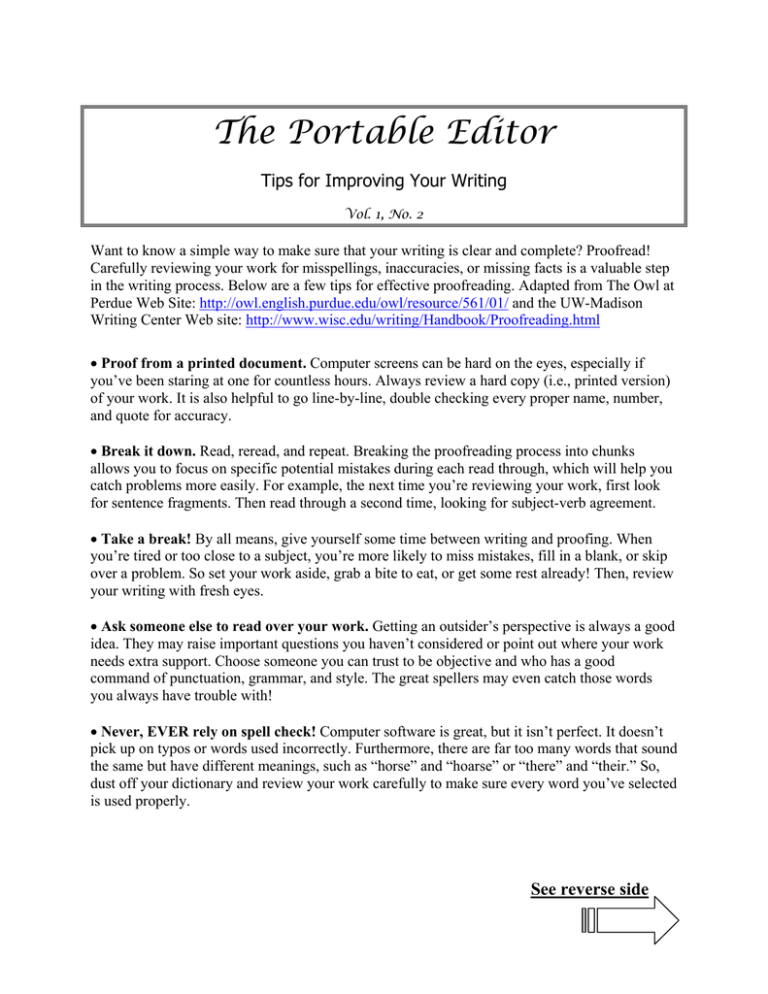
The Portable Editor Tips for Improving Your Writing Vol. 1, No. 2 Want to know a simple way to make sure that your writing is clear and complete? Proofread! Carefully reviewing your work for misspellings, inaccuracies, or missing facts is a valuable step in the writing process. Below are a few tips for effective proofreading. Adapted from The Owl at Perdue Web Site: http://owl.english.purdue.edu/owl/resource/561/01/ and the UW-Madison Writing Center Web site: http://www.wisc.edu/writing/Handbook/Proofreading.html • Proof from a printed document. Computer screens can be hard on the eyes, especially if you’ve been staring at one for countless hours. Always review a hard copy (i.e., printed version) of your work. It is also helpful to go line-by-line, double checking every proper name, number, and quote for accuracy. • Break it down. Read, reread, and repeat. Breaking the proofreading process into chunks allows you to focus on specific potential mistakes during each read through, which will help you catch problems more easily. For example, the next time you’re reviewing your work, first look for sentence fragments. Then read through a second time, looking for subject-verb agreement. • Take a break! By all means, give yourself some time between writing and proofing. When you’re tired or too close to a subject, you’re more likely to miss mistakes, fill in a blank, or skip over a problem. So set your work aside, grab a bite to eat, or get some rest already! Then, review your writing with fresh eyes. • Ask someone else to read over your work. Getting an outsider’s perspective is always a good idea. They may raise important questions you haven’t considered or point out where your work needs extra support. Choose someone you can trust to be objective and who has a good command of punctuation, grammar, and style. The great spellers may even catch those words you always have trouble with! • Never, EVER rely on spell check! Computer software is great, but it isn’t perfect. It doesn’t pick up on typos or words used incorrectly. Furthermore, there are far too many words that sound the same but have different meanings, such as “horse” and “hoarse” or “there” and “their.” So, dust off your dictionary and review your work carefully to make sure every word you’ve selected is used properly. See reverse side • Use your voice! Find a quiet or private spot and read aloud! This approach takes your brain off automatic pilot and helps you pick up on duplicated or missing words. You may even see where sentences are too long or lack structure. Drop-in Writing Support Every Monday, Noon–1 p.m. Office 548E One-on-One Writing Support Please e-mail or call to schedule an appointment Diane Wyant–dwyant@email.unc.edu Office 548E, 842-5575 Wednesdays: Noon–2 p.m.; 5 p.m.–6:30 p.m. Susan White–sewhite@email.unc.edu Office 302C, 962-6418 Mondays: Noon–2 p.m.; Tuesdays: 5 p.m.–6:30 p.m.; Fridays: Noon–2 p.m. These hours are reserved for students, but other times may be available.

